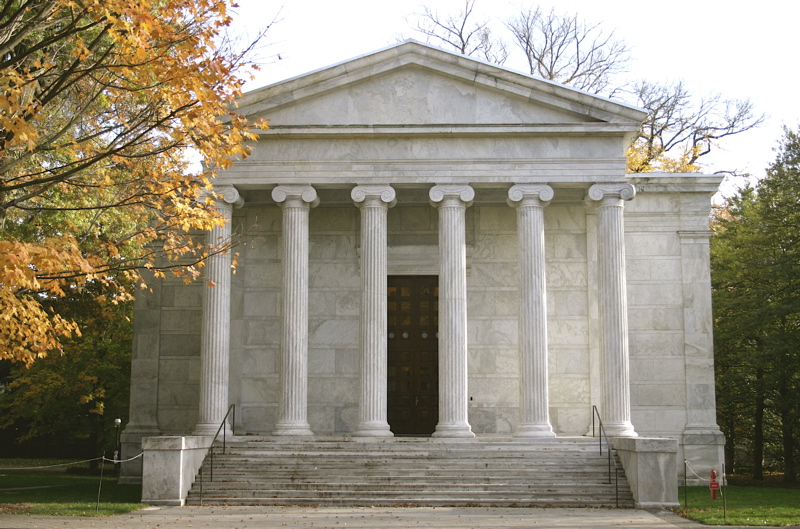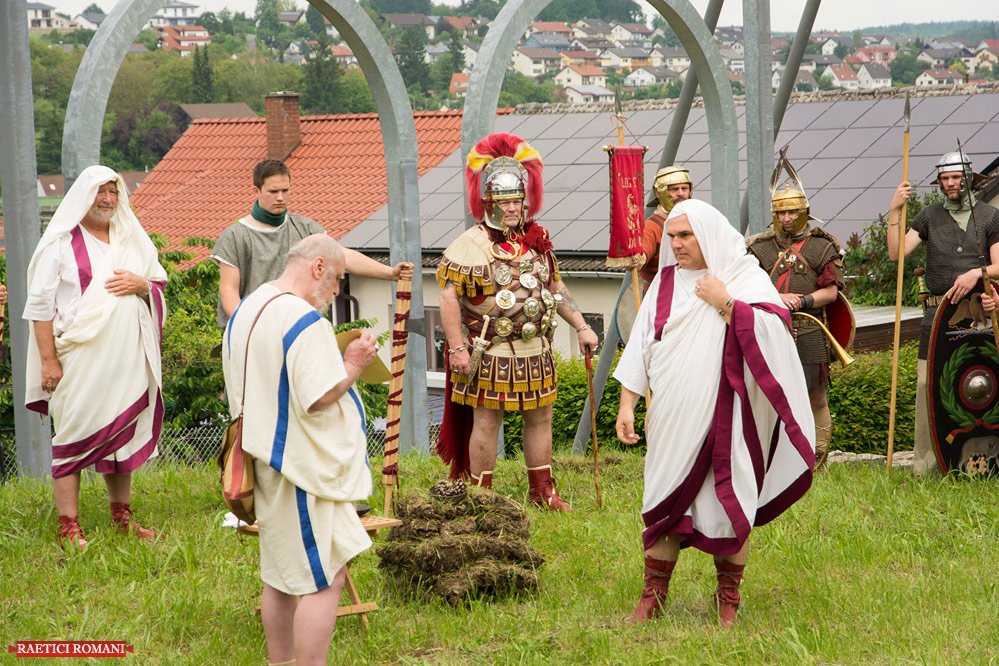Salvete omnes,
(nn;ll* – the proposal was justified because of a nonsensical coincidence of dates, the conversion of followers of the ancient Gods is not something to be celebrated, we explicitly claim sovereignty over the city of Rome equal to that of the Vatican, Christianity doesn’t acknowledge the validity of our Religio, so there’s no reason we should recognize it.)
As one of the co-founders of Nova Roma, I wish to speak against the proposed item currently being discussed by the Senate, the ” Identification of Christianity as belonging among the traditions of Rome” which our esteemed Consul attempted to force through by edict, which was only stopped by the valiant actions of one of our Tribunes.
I will speak plainly. This proposal is a dagger aimed at the very heart of our Republic. It is an evil, and can serve no possible purpose other than to undermine the very purpose for which Nova Roma was founded, and the very foundation stone upon which our Res Publica sits.
On its face, the fact is that this was brought into being upon the flimsiest of excuses – the fact that two holidays happened to coincide, which is an event which has happened dozens of times in the past, and which is dictated by nothing more than simple mathematics. It is worth pointing out that the date of Easter is variable even within Christianity, and that millions of Christians are only celebrating their holiday tomorrow, according to the Orthodox tradition. Add to that the fact that according to the Julian calendar, which was in effect during the period of pagan Roman civilization, which is defined in our Constitution as ending in 394 CE, when the altar of Victory was removed from the Senate, would place the two holidays on very different dates, and the folly of ascribing meaning to this coincidental nonsense become clear.
The substance of this proposal is much more insidious, however.
The author of this proposal has, it seems, forgotten the very reason for the foundation of our Res Publica. As someone who was there at the beginning, allow me to provide that much-needed context. Nova Roma was intended to provide a home for those of us who worship the ancient Gods of Rome; Jupiter, Venus, Mars, the lares and penates, and all the rest. The entire justification for needing a public polity was for the function of the Religio Publica, in order to provide the missing half of the Religio Romana for those people who were already practicing, or who intended to practice, the Religio Privata. That, in essence, is why there exists a Nova Roma in the first place. Everything else — the education in Latin, the educational outreach, the cooking, the clothing, the magistracies, the elections, the offices, the reenactment legions, and all the rest, while certainly wonderful and worthwhile — everything is secondary to that one, primary intention. The practice of the Pagan Religio.
And the proposal to officially recognize the Christian god entirely undermines that prime mover for our very existence. Of course, a Christian wouldn’t see it that way, so of course the point of view of the Gods of Rome doesn’t matter.
But we need look no further than the words of the proposal to see how it falls apart under scrutiny:
“There are still among us who cannot forget that Christianity eliminated our ancestral religion, however, during the 1500 years after the fall of Rome, Christianity also became an ancestral religion of Rome, and almost all of the ancestors of the present day Nova Romans were Christians generations after generations since the fall of Rome. The state religion of Rome was Christian ever since, and Christianity rules Rome and the inhabitants of Rome today. We cannot deny these facts, and as a polytheist culture, we cannot deny the divinity of the Christian god or the validity of the Christian religion, either. We cannot continue to consider the Christian god a foreign god, either, after his cult in Rome was established about 1950 years ago and it has been the official religion for 1600 years.”
No, no, and NO I say! This is completely pig-ignorant of not only Roman history, but Nova Roman history and law as well.
First, the fact that “almost all of the ancestors of the present day Nova Romans were Christians generations after generations since the fall of Rome” is not something to be celebrated. It is an infamia. The fact that our ancestors were weak and faithless enough to abandon the worship of the True Gods of Rome is something for which we should be conducting piaculum for on a daily basis, not celebrating and cheering on. This is a great shame for every single person who purports to worship the ancient Gods, and is something we should be seeking to apologize for with sacrifice, not be trying to put a nice face on.
Of course, a Christian wouldn’t see it that way, so of course the point of view of the Gods of Rome doesn’t matter.
Second, to try to justify this evil by saying “Christianity rules Rome and the inhabitants of Rome today” is both an insult, reminding us collectively of a state of being which we should be actively trying to rectify, but also runs counter to the very Declaratio Novae Romae which I and my fellow Pater Patrius Marcus Cassius Julianus signed, and which was reaffirmed only last year. Has the Consul actually read that declaration? If so, how can he possibly accede control of our Holy City of Rome to the Christians, when Nova Roma explicitly lays claim to the same amount of territory within its precincts as the Catholic Church? Does he think that was a coincidence? It was NOT! It was a deliberate provocation and CHALLENGE to the sovereignty of the Christian church as a whole, and the Catholic church in particular, over the city that we explicitly claim as our “spiritual capital”. And if there are any questions as to what “spirituality” that capital is meant to embody, that very same Declaration claims identical, if temporary, sovereignty wherever the “gods and goddesses of ancient Rome” are worshiped.
This wording is not an accident, and was never intended to include the Christian god. Of course, a Christian wouldn’t see it that way, so of course the point of view of the Gods of Rome doesn’t matter.
Next, we come to the claim that as a polytheist culture, we cannot deny the divinity of the Christian god or the validity of the Christian religion”. This is the most offensive, and biased, statement, one can conceive of in this context. The very heart of the Christian religion is based on its claim of exclusivity! Does not John 14:6 make this plain when it puts the following words in the mouth of the Christian god; “I am the way, the truth, and the life. No one can come to the Father except through me.”? Christianity by its very nature cannot abide any competitor, and will forever attempt to first undermine (while it is a minority) and then crush (when it has power) any theological rival.
We already saw this played out in the very history that the Consul holds up as justification for his proposal, and it ended disastrously not only for the Pagans of Rome, but the Gods of Rome they worshiped. Gaius Galerius Valerius Maximianus Augustus in 311 CE issued his “edict of toleration” which proclaimed Christianity a legal faith within the Empire, to which this proposal can reasonably be likened, and it was a scant 79 YEARS later that the Religo, and other Pagan religions, were outlawed throughout the Empire.
First they come wanting “tolerance” and soon it turns into sovereignty. The Christian god, by his own admission is a jealous one, and will not brook any rival, let alone another God with pride of place. If we acknowledge the validity of Christianity, we must acknowledge this intrinsic intolerance, and to do so destroys the very reason for Nova Roma’s being.
And for that matter, does this mean we have to acknowledge the validity of other religions, too? We explicitly state that ” Nova Roma is open to people of all nationalities and races”. Does the Consul think we should explicitly acknowledge the gods of the Hindus, or the Buddhists, or the Shinto, or the Wiccans, or any of a thousand other faiths? Why single out Christianity for this honor? If one non-Roman faith gets this treatment, why not all the myriad of others?
Finally, the greatest insult both to Reason and to Rome itself, where the proposal states “we cannot continue to consider the Christian god a foreign god”. This is absurd on its face. We can acknowledge that Heracles is a foreign god, and Mithras is a foreign god, and the Great Mother is a foreign god, and all the hundreds of others who were brought to Rome, and who were content to fit themselves into the vast, expansive, and syncretic whole that is the Religio Romana. They were all able and willing to be worshiped alongside the other Gods of Rome. The Christian god very deliberately, and self-consciously, stood outside of that tradition. If Christians aren’t willing to acknowledge the existence of our Gods, why should we be acknowledging theirs? Especially when their whole faith is based on denying not only the existence, but the very concept, of our Gods?
Let’s start seeing some of our Christian cives making offerings of incense to the Gods of Rome, and then maybe we can think about such a statement of inclusion; that would demonstrate that there has been a change in the Christian intransigence when it comes to acknowledging deities outside of their own faith, and thus that they have earned the right to expect such an acknowledgement by another, more syncretic faith. But history has already shown they’re not willing to even go that far; why are we even considering this, other than to undermine the very worship of the Gods for which Nova Roma was founded in the first place?
Valete,
Flavius Vedius GermanicusPater Patriae
__________
* An acronym for “non nimis longum legere”; the Latin equivalent of tl;dr. 😉


